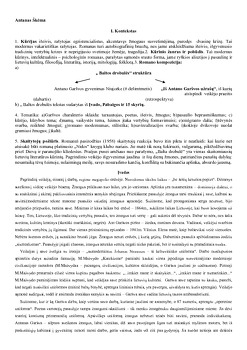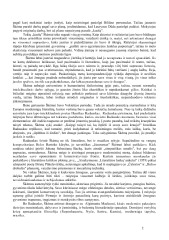

Further short stories, dramas and the novel Balta drobulė were published. He took part in the Chicago Theatre and Boston's Drama Group performances, staged his own plays. He did menial work for a living and eagerly participated in the cultural activities of the Lithuanian exiles. In 1949 Škėma left Europe for United States.

It was also there that his first book, a collection of short stories Firebrands and Sparks ( Nuodėguliai ir kibirkštys), was published. In 1944, upon the second Soviet occupation of Lithuania, he left for Germany, where he was involved in some artistic work with Lithuanian troupes, primarily in DP (displaced person) camps. Škėma briefly participated in the anti-Soviet uprising during the German occupation in 1941. His daughter, Kristina, was born in 1940 as World War II broke out and the Soviet Union occupied Lithuania. Škėma had parts in nearly every play of that period. From 1940 to 1944 he worked at Vilnius State Theater, now also as a director. While he was living in Kaunas he married Janina Solkeviciute, a Polish economist. In 1936 Škėma started acting on the inter-war Lithuania's main stage. In 1935 he joined the theatre studio led by V.Sipavičius-Fedotas and was later accepted to the Lithuanian State Theatre in Kaunas. At that time the school was renamed as Vytautas Magnus University. In 1929 he entered the University of Lithuania Medical faculty, but in 1931 he transferred his studies to the Faculty of Law. He attended high schools in Radviliškis and Kaunas. During World War I he lived in Russia with his parents. His best known work is the novel Balta drobulė ( White Shroud).Īntanas Škėma was born on Novem(according to his birth certificate in 1911) in Łódź, Poland where his father was sent to work as a teacher.

Antanas Škėma ( Lithuanian pronunciation: Novem– September 11, 1961) was a Lithuanian writer, playwright, stage actor and director.


 0 kommentar(er)
0 kommentar(er)
